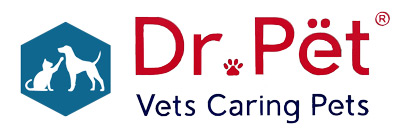PREVENTIVE HEALTH CARE
- Regular Wellness Exams: Comprehensive check-ups to assess overall health and catch any issues early.
- Vaccination Programs: Timely administration of vaccines to protect against common infectious diseases.
- Parasite Control: Routine deworming and flea/tick prevention to protect pets from parasites.
- Dental Care: Regular dental cleanings and check-ups to prevent periodontal disease and maintain oral health.
- Nutrition and Diet Counseling: Guidance on appropriate diets to support pets’ health and weight management.
- Spaying and Neutering: Reducing the risk of certain cancers and preventing unwanted litters.
- Behavioral Assessments: Early identification and intervention for behavioral issues to promote well-being.
- Health Screenings: Blood tests, urinalysis, and other screenings to detect underlying health issues, especially in senior pets.
- Microchipping: Providing permanent identification for pets to facilitate reunification if lost.
- Client Education: Information on pet care, health, and wellness to empower owners in making informed decisions.
By focusing on preventive care, veterinary clinics help ensure pets live longer, healthier lives.
Essential Immunization
We have customised vaccination programmes for puppies ,semiadult ,adult and geriatric dogs according to the prevalence of diseases in our geographical area. Puppy owners and breeders could also check maternal antibody level for parvo and do vaccination against parvo according to the serum antibody titre. Essential immunizations for pets help protect them from various infectious diseases. Here’s a breakdown for dogs and cats:
Dogs
- DHPP (Distemper, Hepatitis, Parvovirus, Parainfluenza): A combination vaccine that protects against several serious diseases.
- Rabies: Required by law in many areas; protects against the rabies virus, which is fatal and transmissible to humans.
- Bordetella (Kennel Cough): Recommended for dogs frequently in contact with others, such as at kennels or dog parks.
- Lyme Disease: Important in areas where ticks are prevalent.
- Leptospirosis: Protects against a bacterial infection that can affect both pets and humans.
Cats
- FVRCP (Feline Viral Rhinotracheitis, Calicivirus, Panleukopenia): A combination vaccine protecting against several viral diseases.
- Rabies: Similar to dogs, rabies vaccination is often required by law.
- FeLV (Feline Leukemia Virus): Recommended for outdoor cats or those at risk of exposure.
General Recommendations
- Puppies and Kittens: Start vaccinations at a young age, with boosters given until they reach maturity.
- Annual Boosters: Regular booster shots are necessary to maintain immunity.
- Consult Your Vet: Tailor the vaccination schedule based on lifestyle, risk factors, and local regulations.
We have customised vaccination programmes for puppies ,semiadult ,adult and geriatric dogs according to the prevalence of diseases in our geographical area. Puppy owners and breeders could also check maternal antibody level for parvo and do vaccination against parvo according to the serum antibody titre. Essential immunizations for pets help protect them from various infectious diseases. Here’s a breakdown for dogs and cats:
Vaccinations are a crucial part of preventive care, helping to keep pets and communities healthy.
Fecal Testing
- Purpose: Fecal testing is used to detect intestinal parasites, bacteria, and other pathogens that can affect a pet’s health.
- Procedure: A small sample of feces is collected and analyzed in a lab. Tests can identify common parasites like roundworms, hookworms, tapeworms, and giardia.
- Frequency: Puppies and kittens are typically tested more frequently (every 3-6 months) until they are about a year old, while adult pets may be tested annually or as recommended by the vet.
Deworming
- Purpose: Deworming involves administering medication to eliminate parasites found in the intestines. It’s crucial for maintaining a pet’s health and preventing transmission to humans and other animals.
- Types of Dewormers: There are various deworming medications, often tailored to specific types of parasites. Common medications include praziquantel for tapeworms and fenbendazole for roundworms and giardia.
- Schedule: Puppies and kittens often receive their first deworming at around two weeks of age, followed by additional treatments every two weeks until they are around eight weeks old. Adult pets may require deworming based on fecal test results or as part of routine preventive care.
Importance
- Health Risks: Intestinal parasites can cause a range of health issues, including vomiting, diarrhea, weight loss, and anemia. Some parasites can also affect humans.
- Prevention: Regular fecal testing and deworming help ensure pets remain healthy and prevent the spread of parasites.
Annual Health Check-Up
- Health Assessment: The veterinarian conducts a thorough examination to assess the pet’s overall health.
- Fecal Testing: A fecal sample may be collected to check for the presence of intestinal parasites.
- Discussion of Risks: The vet discusses potential risks based on the pet’s lifestyle, age, and exposure to other animals.

 Appointments: +91 76958 09090
Appointments: +91 76958 09090